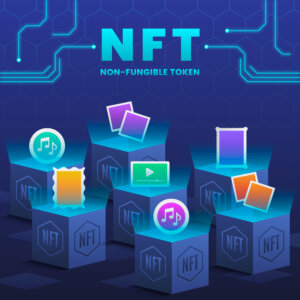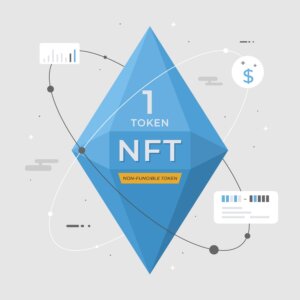Crypto wallets can provide security for the multitudes of digital assets currently available for purchase. However, not all cryptocurrency holders are created the same. This article offers the lowdown on the best crypto wallets on the market today.
Best Crypto Wallets
- Exodus – Best Overall
- Coinbase – Best for NFTs
- Ledger – Best Physical Wallet
- Trezor – Best for Security
- Electrum – Best for Bitcoin
- Mycelium – Best for Mobile Apps
- Trust Wallet – Best for Staking
Software
Price
Security
Platforms
Type of Wallet
Number of Currencies Supported
Free to download, minor fees for sending and receiving
Encrypts private keys, no registration required
Windows, Android, and iOS
Hot
185
Free to download, customizable transaction fees
Uses unique offline phrases that only the user can see
Chrome Extension, Windows, Android, and iOS
Hot
Over 5,000
$77 or $280
U2F and FIDO2 authentication, Encryption via GPG
Windows, Mac, Browser, Android
Cold
Over 1,000
$59 to $149
CC EAL5+ secure element, 24 word recovery phrase
Windows, Mac, Android, iOS
Cold
5,500+ assets
Free to use, customizable transaction fees
Very secure seeds, encrypted private keys
Windows, Android, iOS
Hot
Bitcoin only
Free to use, customizable transaction fees
Reproducible wallets, no logins, several levels of pin protection
Android, iOS
Hot
Bitcoin, Ethereum, some ERC-20 tokens
Free to download and use, fees for exchanges
Uses private access keys to keep assets safe
Browser, Android, iOS
Hot
Over 1 million assets
Exodus wins out as the best crypto wallet thanks to its ability to hold almost every currency under the sun. It is free outside of blockchain transaction fees and comes with a handy mobile app for on the go.
Exodus only recently started allowing users to purchase crypto from the app and still lacks functionality. Because there’s no cloud, you’ll have to sync apps often to ensure information is up to date.
Why we chose it: Exodus is a powerful crypto wallet supporting over 180 cryptocurrencies in an app with robust built-in security features.
- Supports over 180 cryptocurrencies
- Free to download and use
- Android and iOS mobile app
- Fees for sending and receiving currencies
- Can only buy limited crypto through a third-party app
- No cloud, have to sync apps
Pricing: Exodus’s wallet is free to download and use to view your assets from the 180+ currencies currently supported. This holds true for both desktop and mobile apps.
The wallet doesn’t charge any fees for transactions, but you will incur costs for sending and receiving cryptocurrencies through the app. These fees come from the blockchain itself, as miners use electricity and computing power to perform these actions on your behalf.
Fees will vary depending on the amount of cryptocurrency you’re transferring and how much data the system uses. You’ll see these deductions come right out of your crypto wallet.
Coinbase Wallet has grown from a Bitcoin app to a platform that can store thousands of unique types of cryptocurrency and any NFTs you’ve managed to acquire. It is entirely free to use outside of unavoidable blockchain transaction fees, but Coinbase allows customizable transactions to keep costs down. You will need Coinbase’s main app to do any buying or selling, and customer service seems to struggle at providing good help.
Why we chose it: Coinbase is one of the few free crypto wallets that can store your growing NFT collection alongside numerous crypto assets.
- Stores NFTs alongside cryptocurrencies
- Supports over 5,000 currencies
- Customizable transaction fees
- Need a separate app to buy or sell
- Transaction fees from blockchain
- Lackluster customer support
Pricing: The Coinbase Wallet is part of the larger Coinbase platform with a few different available apps. The NFTs wallet is free to download and set up to view whatever assets you have. This also holds true for NFTs, and is one of the few wallets to support these tokens.
Anyone sending and receiving currencies on Coinbase has to deal with blockchain transaction fees charged by the miners who perform the transfer. With Coinbase, you can customize these fees to pay only what you feel comfortable with. Generally speaking, the less you pay, the slower the transfer will be.
Ledger’s physical cryptocurrency wallets were some of the first to hit the shelves and remain the best available. The portable devices can store over 5,500 different types of coins and up to 100 apps for detailed management.
It’s possible to buy, exchange, or trade currencies straight from Ledger’s app or from the wallet on higher-end models. Wallets are not cheap, and portability means a small screen size to work with. Devices also have a limited capacity to store apps.
Why we chose it: With layers of security, backups, and a smooth interface, Ledger’s Nano series of hardware wallets offer top-tier protection while letting you buy, trade, or exchange straight from the device.
- Can buy, trade, and exchange straight from the app
- Small, compact devices
- Possible to install up to 100 apps on the device
- Devices are on the pricey side
- Small display
- Limited app capacity
Pricing: Ledger brings three devices into the mix. Its newest, the Nano S Plus, is a revamped version of the original device that dominated the market for several years.
The Nano S started it all for Ledger. Now at $59, this physical device is one of the more budget-friendly options on the market while still containing several security features to keep you safe. The wallet holds thousands of different crypto assets while allowing you to buy, trade, or exchange at any time through the accompanying app.
Ledger’s newest offering is the Nano S Plus for $79, designed to take its original wallet to a whole new level. This pocket-sized device looks like ordinary USB storage but can manage over 5,500 assets alongside up to 100 crypto apps. A larger screen makes it possible to monitor coins straight from the stick, but you can also plug it into a phone or computer through a USB-C port.
The top-of-the-line Nano X contains the same level of security but can stand alone with up to eight hours of battery life. Connectivity is easier than ever with Bluetooth support, but you’ll need to get past the $149 price point.
Trezor looks to the physical world with a pair of hardware devices for protecting your crypto assets. Taking everything offline is the best way to defend your accounts from plunder by digital thieves. However, these products are not cheap and can take a bit of time to understand for new users. Although devices can pair up with Android phones, there’s no app to make the process easy. iOS phones aren’t compatible with Trezor at present.
Why we chose it: Trezor’s handheld wallets not only take your crypto assets offline, but each device contains additional protection and ways to recover coins if lost or stolen.
- Wallet is a physical device
- Several built-in security features
- Stores assets and data offline
- Expensive devices
- No mobile app
- Can be confusing to use
Pricing: Trezor showcases two unique physical devices for storing cryptocurrencies. Each offers high levels of security and takes your assets offline, keeping them safe from digital attacks.
The Trezor Model One is a petite hardware wallet costing $77. At just over two inches tall, you can carry it in a pocket, purse, or leave it in a safe location at home. The screen is a bit on the small side, making it a bit difficult for some users to make sense of the prompts at first glance. When you do need to perform trades, you can hook up the device to a computer or Android phone with a micro-USB cable.
Trezor’s other offering is the Model T, coming in at $280. This single device becomes your wallet, authenticator, and digital ID all in one bite-size package. It even features a backup system to protect your currencies should you lose the device. A foolproof design ensures you don’t make any accidental actions as you monitor assets or trade.
Electrum was made specifically for Bitcoin and still reigns as the best crypto wallet for the coin. Its security is second-to-none due to very secure encryption seeds, which allows you to use the seed to recover your Bitcoin should you lose it. The software is quite easy to get up and running but minimalistic in its appearance and features. You may get help from the community if there’s an issue, but you won’t find any official customer support.
Why we chose it: Bitcoin users need to look no further for top-of-the-line security and customizable transaction fees.
- Top-notch Bitcoin security features
- Customizable transaction fees
- Quick and easy to set up and use
- Bare-bones user interface
- Bitcoin only
- Limited customer service
Pricing: Electrum has been free since it rolled out all the way back in 2011. The open-source software keeps your Bitcoin safe while eliminating downtimes across multiple platforms.
You won’t be able to avoid miners’ fees for processing your exchanges, as is the case across the blockchain as a whole. However, these costs are customizable, allowing you to limit how much to pay for a transaction. As a rule of thumb, smaller fees lead to longer wait times.
Mycelium’s mobile app features the best protection across all platforms. Not only are assets secure, the software also has backup options should the unthinkable happen. For whatever reason, these features have yet to extend beyond mobile devices. The scope of coins you can store is somewhat limited, as are options for customer support.
Why we chose it: Mycelium is a free mobile-only app with reproducible technology that ensures your wallet is completely secure.
- Stellar mobile apps
- Customizable transaction fees
- Reproducible, secure, backs up your data
- Email customer service only
- Supports a limited number of coins
- No computer-based apps
Pricing: Mycelium features a free app for iOS or Android devices, providing complete security and a backup system should you lose access to your assets. While miners’ fees are unavoidable, Mycelium allows you to customize your costs whenever you make an exchange. Keep in mind that higher fees have the best chance of being completed fast.
Trust Wallet offers an unusual means of earning interest on lesser-known crypto in a similar way to storing money in a bank. The platform as a whole supports over one million digital assets to cover all your needs while remaining free to download and use. Outside limited browser functionality, you’re forced to use your phone for all transactions. Trust Wallet doesn’t provide clear information on each of its coins, and you can’t rely on the slow customer service team for timely help.
Why we chose it: Going beyond simple storage, Trust Wallet allows you to stake coins and make passive income on currencies you’re not actively trading.
- Can stake 12 different cryptocurrencies
- Supports over 1 million different assets
- Free to download and use
- No desktop app
- Minimal customer service
- Little documentation on supported coins
Pricing: Trust Wallet has a free app for mobile devices and browsers that lets users buy and exchange cryptocurrencies with the push of a button. Its stand-out feature is the ability to earn interest on one of 12 different currencies, although most are less popular types of cryptocurrency.
By staking your coins, you effectively enter into a contract with Trust Wallet to store assets for an amount of time. The process isn’t much different from a bank account, and you can make income on crypto you’re not currently using.
If you do want to exchange any of your coins, Trust Wallet allows you to do so through miners. Since miners provide the resources to transfer currency, you’re required to pay a small fee (in cryptocurrency) for the swap to take place.
Methodology for the Best Crypto Wallets
Cryptocurrency wallets are complex by design to keep their contents out of the wrong hands. We studied everything that goes into making a crypto wallet great and used the following considerations to make our picks.
- Security:
- A wallet does little good if it can’t keep your valuable assets safe. Hackers are ever-present in this day and age, and the top cryptocurrency wallet creators have to go above and beyond with advanced algorithms and detailed seeds to keep your digital money safe.
- Look for software that uses long strings for seeds, ideally at least 12 words. The more words the better when it comes to security, but you may need to call upon this seed to restore your information from a backup in the event of a loss.
- Consider extra security features like encryption and authentication to create additional barriers from hacking. Some even require biometric information to boost security that much more. It’s also worth noting which companies have been hacked in the past and the measures they put in place to prevent another.
- Type of Wallet:
- Going hand in hand with security, the type of wallet you use can further protect your assets from unsavory characters. Wallets are either hot or cold.
- Hot wallets require a connection to the internet to access and interact with. This “hot” connection does mean they are susceptible to attacks from outside sources, but as mentioned earlier, most products add layers of security to prevent this from happening. While less secure than the alternative, hot wallets allow convenient access to the crypto market for buying or trading.
- Cold wallets function independently of the internet, keeping your assets completely offline and away from the hands of thieves. These wallets come in physical form as a device similar to a flash drive. They store your information, but with much more security. These devices keep your investments safe but require a few extra steps should you want to make a sale or exchange.
- Fees:
- Cold storage wallets will come with a one-time cost to acquire the physical device. Other than that, the best crypto wallets don’t charge to view currencies or for transactions.
- The only fees you should encounter come from miners who use resources to transfer or exchange your coins. These are unavoidable but are often customizable to keep costs at a level you can afford.
- Ease of Use:
- Crypto wallets need not be nearly as complicated as the coins and tokens they store. Many hot wallets come with user-friendly apps for navigating assets and making crypto trades on the web. Others may have complex features best suited for those very familiar with blockchain. Find an app that speaks to the level of functionality you’re most comfortable with.
- Number of Cryptocurrencies:
- Gone are the times of one or two cryptocurrencies. Today, there are millions of crypto assets out there for trade. The value of coins rises and falls just like stocks, so you’ll want to pick a wallet that lets you transfer from one coin to another to avoid a sinking ship.
- It’s also worth finding a wallet that’s quick on the update of new coins. Getting in on the ground floor of a cryptocurrency can spell considerable gains if the timing is right.
- Accessibility:
- Whether you prefer mobile, PC, Mac, or some combination therein, it’s important to pick a wallet that’s easily accessible for you. Some wallets are only available on limited platforms, so shop around accordingly.
- Customer Support:
- Depending on how long you’ve been dabbling in the crypto world, you may have hundreds or thousands of dollars worth of coins tucked away in your wallet. In the event of downtime or loss, you want to know how to reach someone as soon as possible to regain access to what’s yours.
Frequently Asked Questions (FAQs) for Best Crypto Wallets
Crypto wallets can be confusing even for those who have spent a significant amount of time in the digital space. The answers below address some of the most common questions regarding these valuable tools.
Bottom Line on the Best Crypto Wallets
Crypto wallets provide necessary protection from theft or loss of digital currency. Whether cold or hot, the best ones offer layers of security to keep your assets safe. No matter which wallet you choose, it should be free of unnecessary fees while being easy to use.
 Sections of this topic
Sections of this topic


















